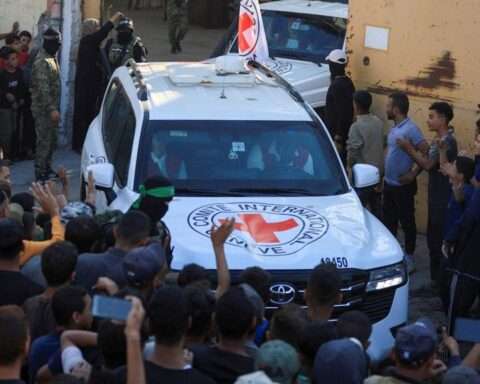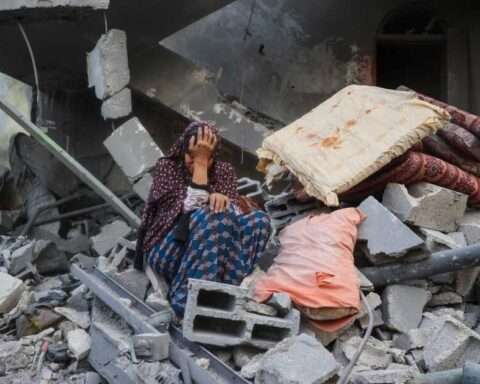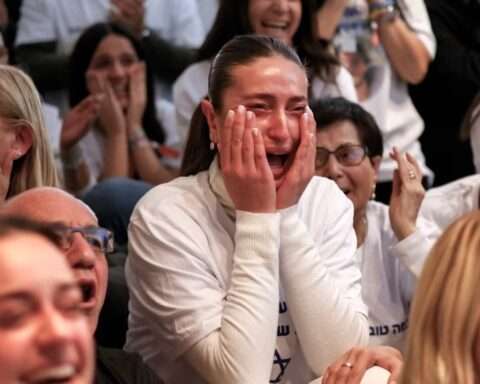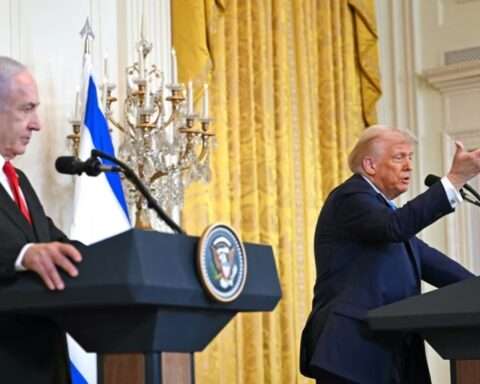Israeli said its troops had launched a “targeted and precise” ground operation in southern Lebanon aimed at the operations of Iran-backed Hezbollah, a militant group and political party that controls much of the area, despite U.S. opposition to the move amid fears events in the Middle East could spin out of control.
Amid calls around the world for a de-escalation of the situation, Israel has vowed to keep up the pressure on Hezbollah and has declared a military zone in parts of its northern border with Lebanon.
Hezbollah is designated as a terrorist organization by the United States, while the European Union blacklists its armed wing but not its political party. Hezbollah’s political party has seats in the Lebanese parliament.
“In accordance with the decision of the political echelon, a few hours ago, the IDF (Israeli Defense Forces) began limited, localized, and targeted ground raids based on precise intelligence against Hezbollah terrorist targets and infrastructure in southern Lebanon,” the IDF said in a statement late on September 30.
“These targets are located in villages close to the border and pose an immediate threat to Israeli communities in northern Israel.”
Israel has launched withering air attacks on Hezbollah in recent weeks, including missile strikes that killed the group’s longtime leader, Hassan Nasrallah, as well as claiming the lives of multiple Hezbollah leaders and other members of sanctioned militant groups.
Senior Hezbollah officials had claimed in recent days that its fighters were “ready if Israel decides to enter by land.”
The launching of the ground operation came just hours after U.S. President Joe Biden, when asked whether he was comfortable with Israel taking such a move in Lebanon, said: “I’m comfortable with them stopping. We should have a cease-fire now.”

Later, as tensions mounted, the White House said in a statement that Washington believes the way to get an Israel-Lebanon cease-fire is to have a diplomatic resolution.
French Foreign Minister Jean-Noel Barrot, speaking from Beirut on September 30, also urged Israel “to refrain from any ground incursion and to cease fire.” He also called on Hezbollah “to do the same and to refrain from any action likely to lead to regional destabilization.”
Israeli attacks in Lebanon and in Yemen against Iran-backed Huthi rebels and claims by Tehran-allied Hezbollah militants that they had fired into Israel with their new “Nour missile” — which observers say might be a ballistic missile — led to increased fears that there could be an all-out war in the Middle East.
Late on September 30, an Israeli air strike hit Beirut’s southern suburbs, creating large explosions after Israel’s military had warned civilians to leave three specific buildings that would be targeted in the densely populated neighborhood.
Separately, Iran said it would not deploy forces to Lebanon or the Gaza Strip to fight Israel amid the intensified attacks against the Hezbollah in Lebanon.
“There is no need to send extra or volunteer forces of the Islamic Republic of Iran,” Foreign Ministry spokesman Nasser Kanani said on September 30, saying Lebanon and fighters in the Palestinian territories “have the capability and strength to defend themselves against the aggression.”
Kanani’s statement came as Naim Qassem, deputy head of Hezbollah, said in a video message that a replacement for Nasrallah will be chosen “sooner, rather than later.”
In the message, he said the selection will be made within the regular mechanisms of Hezbollah. He gave no further details.
Nasrallah was killed last week in an Israeli air strike on the southern command center of Hezbollah.
Israel’s military has also widened its attacks on Iran-backed militant groups, striking the Yemeni port city of Hodeida, which is held by Tehran-allied Huthi rebels, even as it intensified air strikes on Hezbollah strongholds in southern Beirut and elsewhere in Lebanon.
The losses suffered by Hezbollah appear to be the heaviest since Iran’s Islamic Revolutionary Guards Corps helped create the militant group in 1982 to blunt an Israeli invasion of Lebanon.
Nasrallah joined Hezbollah to fight in that conflict and in 1992 became its leader, building the group into Lebanon’s most powerful military and political force.






